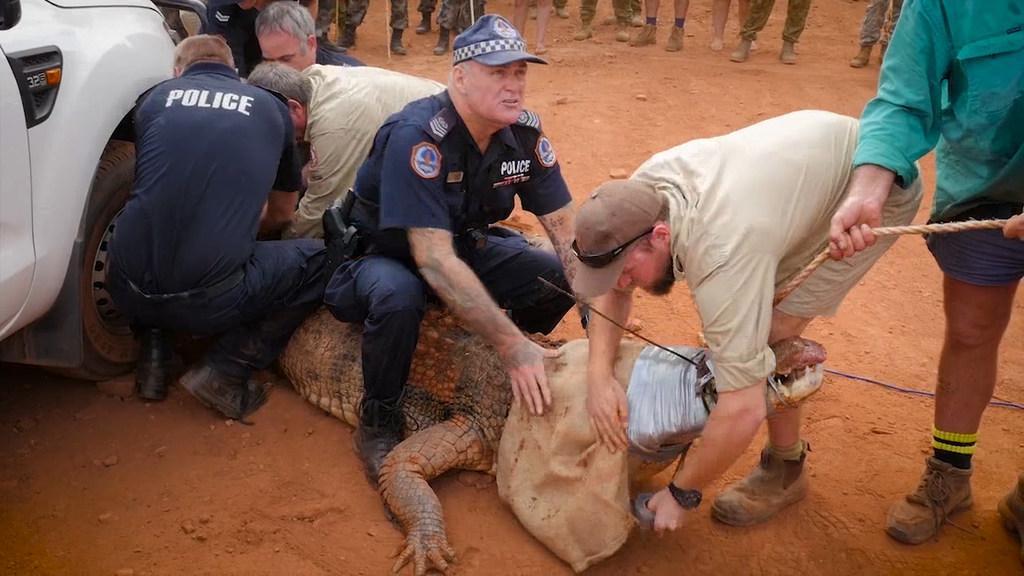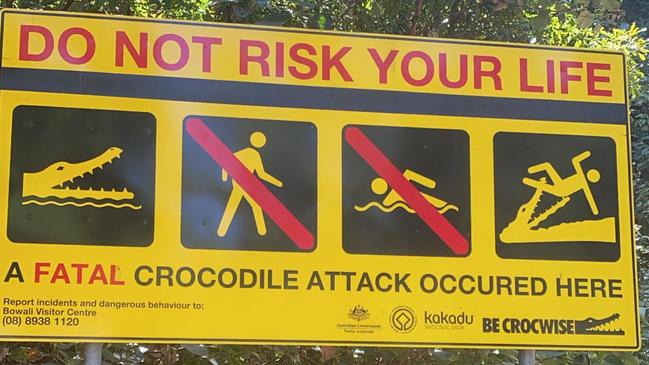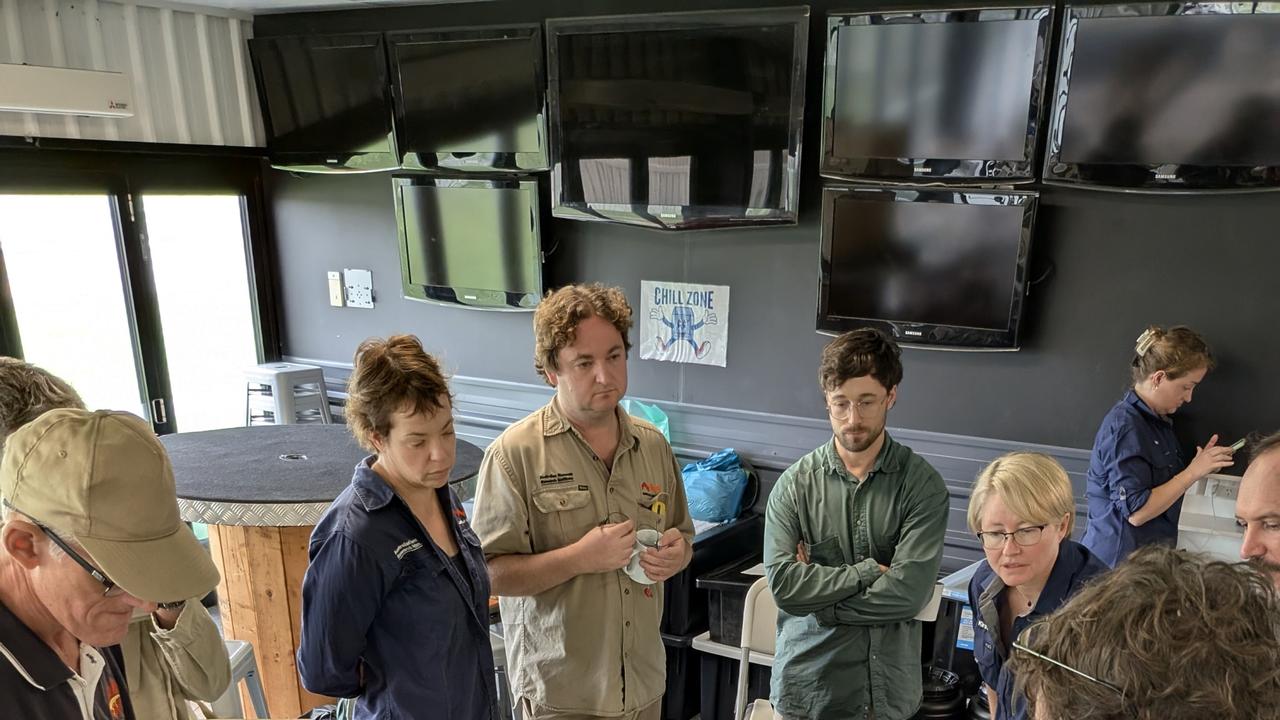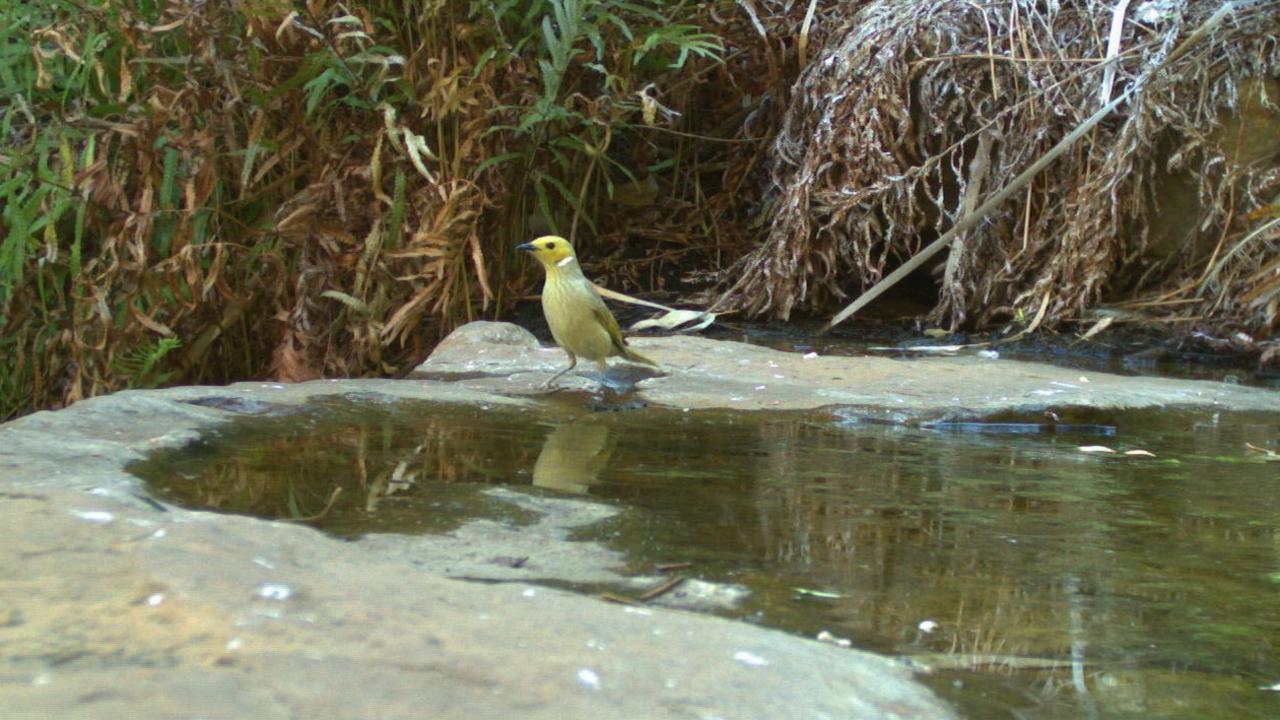Be Crocwise: How to be safe in and around Top End waterways
Territory Parks has issued a warning as hotter temperatures in the Northern Territory has crocs on the move. What does it actually mean to ‘Be Crocwise’?

Pets and Wildlife
Don't miss out on the headlines from Pets and Wildlife. Followed categories will be added to My News.
Territory Parks has issued a warning as hotter temperatures in the Northern Territory has crocs on the move.
As the weather warms, saltwater crocodiles travel farther than usual, looking for food and a partner.
“Safe behaviour in and around Top End waterways is important,” NT Parks and Wildlife said. “Think about your actions, help each other make the right decisions, and do not become complacent.
“Be Crocwise these school holidays.”

The ‘Be Crocwise’ campaign launched in the Territory in 2009, and has led to a 10 per cent drop in attacks, according to research published by Charles Darwin University academics.
Lead author Cameron Baker said being Crocwise generally meant staying out of the water and well clear of the water’s edge if it could be croc habitat.
It’s the start of the mating season now, or just about to enter it, and that means there will be increased movement and slightly more aggression from some of the males,” Dr Baker said.
“But really there isn’t an attack season and a non-attack season, you need to always be cautious.”
“The primary thing is that you don’t want to get too close to the water’s edge – stay 5m back.
“If you’re camping you want to be about 50m back.
“If you do need to go to the water, don’t go to the same spot every time because crocodiles are very good at picking up patterns.
“If you’re on a boat, stay in the boat and avoid putting your arms or legs or any part of the body over the side.
“Just because you don’t see a croc somewhere, even if you haven’t seen one for several years, doesn’t mean it’s not there.”

Between 1979 and 2022, a total of 76 crocodile attacks occurred in the NT, and 30 per cent of them were fatal.
None of the deadly attacks were by crocs smaller than 2m.
Dr Baker said when it came to people swimming at Top End beaches, size mattered.
“The larger the croc that attacks you, the higher likelihood it could be a fatal attack. Don’t trust any crocodiles over 3m,” he said.
Dr Baker said the hundreds of people who braved the ocean at Darwin beaches such as Nightcliff or Fannie Bay were taking “a slight gamble” each time, but it was at the “lower end of the risk scale”.
“Compared with places like Shady Camp or Adelaide River, you don’t see as many huge crocs in Darwin Harbour.”





